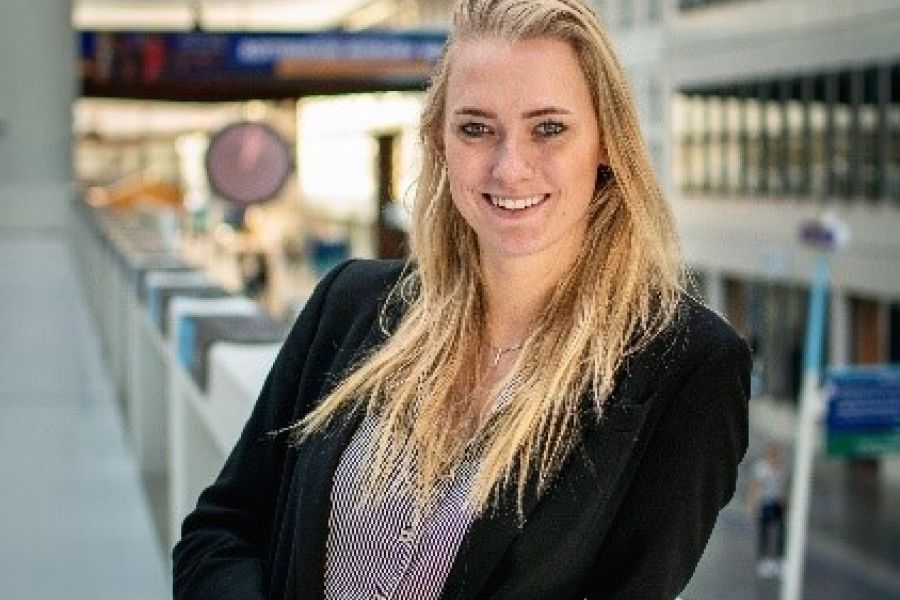A day-night rhythm for preterm newborns, will it strengthen them? Demy wonders

In January, PhD candidate Demy van Gilst started her project in the Erasmus Medical Center of Rotterdam. In her project, she investigates the possibilities to induce a better day-night rhythm in neonates. The question she aims to answer whether that will lead to a faster growth and better long-term health. Under supervision of dr. Marijn Vermeulen, dr. Ines Chaves, prof. Bert van der Horst and prof. Irwin Reiss.

Who are you?
My name is Demy and I am a MD-PhD student in the lab of Bert van der Horst at Erasmus MC. I am a born and raised “Rotterdammer” and I live close to the city together with my boyfriend. In my spare time I like to go to the gym, do horse-riding and go out for dinner with my friends. I also really like to travel (although that is barely possible now due to COVID-19 of course) and dive. I am very outgoing and social and I get a lot of energy from being around other people.
What is your background?
I have a background in Medicine where I graduated from last year. Next to that I started a research master in Molecular Medicine. During my first year of Molecular Medicine I worked on a liver and cholangiocarcinoma cancer organoid model. Last july I started to work on a project in Bert van der Horst lab as a second year molecular medicine student and I just started with my PhD.
Where will you work on your project and what is your project about?
My project within BioClock will be on the circadian rhythm, health and development, where I will investigate the effect of enhancing the circadian rhythm of preterm infants on the neonatal intensive care unit at the Erasmus MC hospital. This includes improving the sleep and rhythmicity of the mother and time-dependent feeding. The eventual goal is to improve the baby’s rhythm and correlate this with later life health outcomes.
When did you first hear about the biological clock?
I first started to look for a topic for my research master, and I was already very much interested in the clock and its molecular mechanisms. During my bachelor in medicine we were educated about the fact that time of admission of medication is important for its efficiency, which of course has a huge clinical impact. Also a lot of evidence has shown that women working in shifts have a higher risk of breast cancer which I also found both shocking and interesting at the same time. This triggered me to dive a little deeper into the field of chronobiology and eventually led me to my current research project. When it was mentioned that this PhD position became available I was immediately interested.
What is something that people should know about you?
I am very impatient which can be a bit difficult in research!
To get in touch with Demy: d.vangilst@erasmusmc.nl

The BioClock Consortium is funded by the NWA-ORC programme of the Dutch Research Council (NWO; project number 1292.19.077).